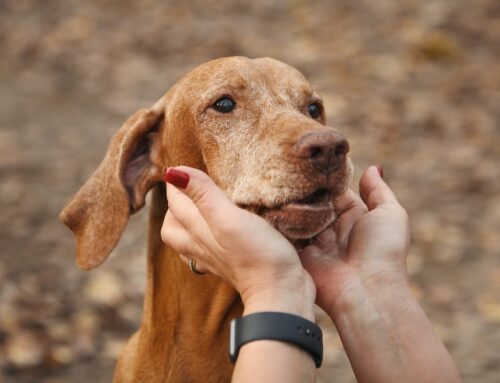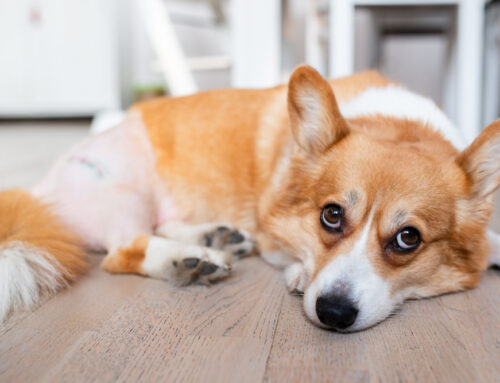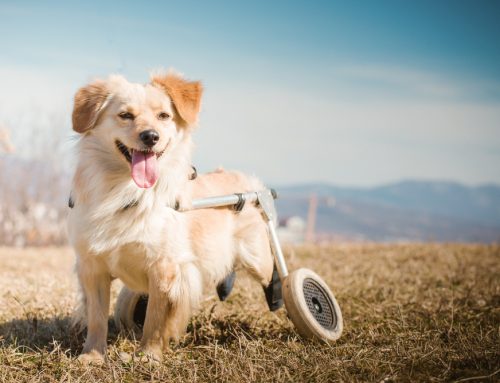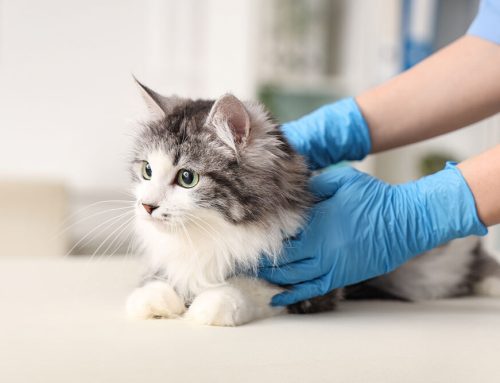Pets are curious, and we love that about them. But curiosity can get them into trouble if we aren’t diligent about keeping potentially harmful substances secure and out of reach. But, how do you know which common household items are the most toxic? Our team at Homestead Animal Hospital is here to share some of the most notorious household items that are toxic to pets, and what to do should your pet ingest one.
#1: Human medicines: They are not for pets
Over-the-counter (OTC) and prescription medicines can be found in most household medicine cabinets and also in purses, backpacks, and jacket pockets. This means a curious pet can easily sniff out and potentially ingest these items, which can have life-threatening consequences. Common OTC medicines that can be toxic to pets include:
- Ibuprofen
- Naproxen
- Cold medication
- Herbal supplements
- Topical products
Prescription medicines are also dangerous for pets, including:
- ADHD medication
- Antidepressants
- Heart medication
Keep all mediations secured and out of your pet’s reach—never leave them lying around in bags, purses, or pockets. Also, never medicate your pet without consulting your veterinarian.
#2: Human foods: Resist the urge to share with your pet
Many human foods are toxic for pets, so think twice before tossing them a scrap of your meal—no matter how cute they look as they beg. These human foods are particularly harmful to pets:
- Grapes and raisins
- Caffeine
- Garlic
- Onions
- Leeks
- Chives
- Macadamia nuts
- Raw yeast dough
- Alcohol
- Xylitol, which is often found in sugar-free gum
In addition to keeping these foods off-limits for your pet, ensure your trash cans are always closed securely, and do not leave food unattended on the counter where a pet can easily reach. When sharing snacks with your pet, stick to fresh fruits and veggies.
#3: Chocolate: Delicious, but extremely toxic to pets
Because so many chocolate toxicity cases occur each year, this food has been given a category of its own. This delicious treat can be found all over the house—especially if you have a sweet tooth—but it’s a huge risk for pets who can quickly eat enough to make themselves sick. Pet owners must remember that the higher the cocoa content, the more dangerous the chocolate for your pet. In addition to the chocolate itself, your pet can eat the wrappers and foil, which can lead to gastrointestinal obstruction.
#4: Plants: Pretty flowers can cause problems for pets
Many indoor and outdoor plants can be hazardous to pets, including those found in cut bouquets. A complete list of toxic and non-toxic plants can be found on the ASPCA’s website, but the most common toxic plants include:
- Autumn crocus
- Azalea
- Cyclamen
- Daffodils
- Dieffenbachia
- Hyacinth
- Kalanchoe
- Lily of the valley
- Lilies
- Oleander
- Sago palm
- Tulips
Before bringing home a plant, ensure it’s pet friendly. Keep any potentially toxic plant you do have inside in a place that your pet cannot reach. Also, be aware that ingesting lilies is extremely dangerous, and can be fatal, for your cat.
#5: Chemicals: Keep them away from your pet
Some chemicals, like insecticides, are highly toxic and have a taste that pets enjoy, so always keep them safely locked away. These common household chemicals can be deadly for your pet:
- Antifreeze
- Bleach
- Detergents
- De-icing salts
- Dog flea and tick medication
- Fertilizers
- Herbicides
- Insect and rodent bait
Other toxic household chemicals include paint, adhesives, spackle, and cleaning chemicals, so keep these items safely stowed, and put pets away when performing any household tasks that require their use.
#6: Miscellaneous household items: Curious pets can get into trouble

Be aware of household items with the potential to choke or strangle your pet. Some household items can block their intestines if swallowed, and will require emergency veterinary care. Some common items that can lead to problems for your pet include:
- Dental floss, yarn, or string
- Holiday decorations—especially lights and tinsel
- Toys with small, removable parts
If you suspect your pet has been exposed to a toxin, act quickly. Contact an animal poison control hotline, like the ASPCA APCC, for immediate advice, followed by contacting Homestead Animal Hospital. We constantly strive to provide you and your pet with the best care possible, especially in an emergency, and we have now partnered with GuardianVets to provide you with after-hours and 24/7 veterinary care support. If you have a question about a possible pet poisoning after hours, simply call our practice.
















Leave A Comment